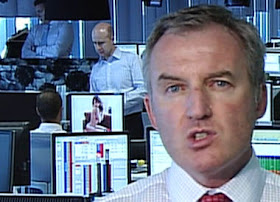 The Catcher In The Rye by J.D. Salinger.
The Catcher In The Rye by J.D. Salinger.A couple of reasons for reading this: firstly I bought it back in 1994 just before my first ever trip to America (to Boston and Maine for my friend Matt's wedding) - it seemed appropriate to read a classic American novel in its native setting. Now I recall reading a few books during the trip, during rare moments of sobriety, but never got round to starting this one, nor have I done so in the 15 years since. So as I recently visited the USA for the second time, there seemed to be a pleasing synchronicity to reading it during the trip this time. Plus, of course, the author's recent demise probably caused his name to float into my subconscious when I was packing books.
So, anyway, I daresay many people are familiar with the basic plot already, but bear with me, because it won't take long: Holden Caulfield, scion of a well-off New York family, has just been expelled from Pencey Prep in Pennsylvania, the latest in a long line of schools he's been chucked out of. Not being in any particular hurry to let his parents know about his latest disgrace, he hangs around with a couple of roommates for a while, then, in the middle of the night, takes a train to New York and books into a seedy hotel, where, after hanging around in the bar for a while, he has a clumsy and unsatisfactory encounter with a prostitute in his room - as if this wasn't humiliating enough he is then beaten up by her pimp after an argument over money.
He spends the next couple of days hanging around New York, eventually finding his way to the family home where he meets up with his younger sister Phoebe (there are also two brothers - younger brother Allie who died of leukaemia a few years previously, and older brother D.B. who is a screenwriter in Hollywood). Having described to her his outlandish plans for heading out west to start a new life, he is taken by surprise when she insists on coming with him. In persuading her that this is impossible, he cools off on the whole idea himself and the two of them head back to the family home, where, we're invited to assume, a reconciliation of sorts takes place with his parents.
The plot (such as it is) isn't really the point though - this is a prototypical tale of teenage rebellion and angst, written in a first-person vernacular with lots of distinctive tics as well as some language that was scandalous in 1951 and resulted in occasional attempts to have the book banned (in the USA at least). By modern standards it's pretty mild, though: a few goddams and Chrissakes and the odd bastard, plus a handful of fucks toward the end. Holden's resistance to any form of compromise with the world, or, to be more judgmental, to any concession that he can't just do what he wants, whenever he wants, should be familiar to anyone who's ever been sixteen, and - hey - that's pretty much all of us.
I enjoyed it very much, but I think in order to be absolutely blown away by it you really need to be a teenager when you read it, otherwise Holden's angst can start to seem just a little bit whiny, coming as it does from the much-indulged offspring of an evidently well-off and loving family. Kids today, eh? Clearly one of the people it made a big impression on was one Mark Chapman, who was clutching a copy of the book when he was arrested shortly after fatally shooting John Lennon in New York in 1980.




















